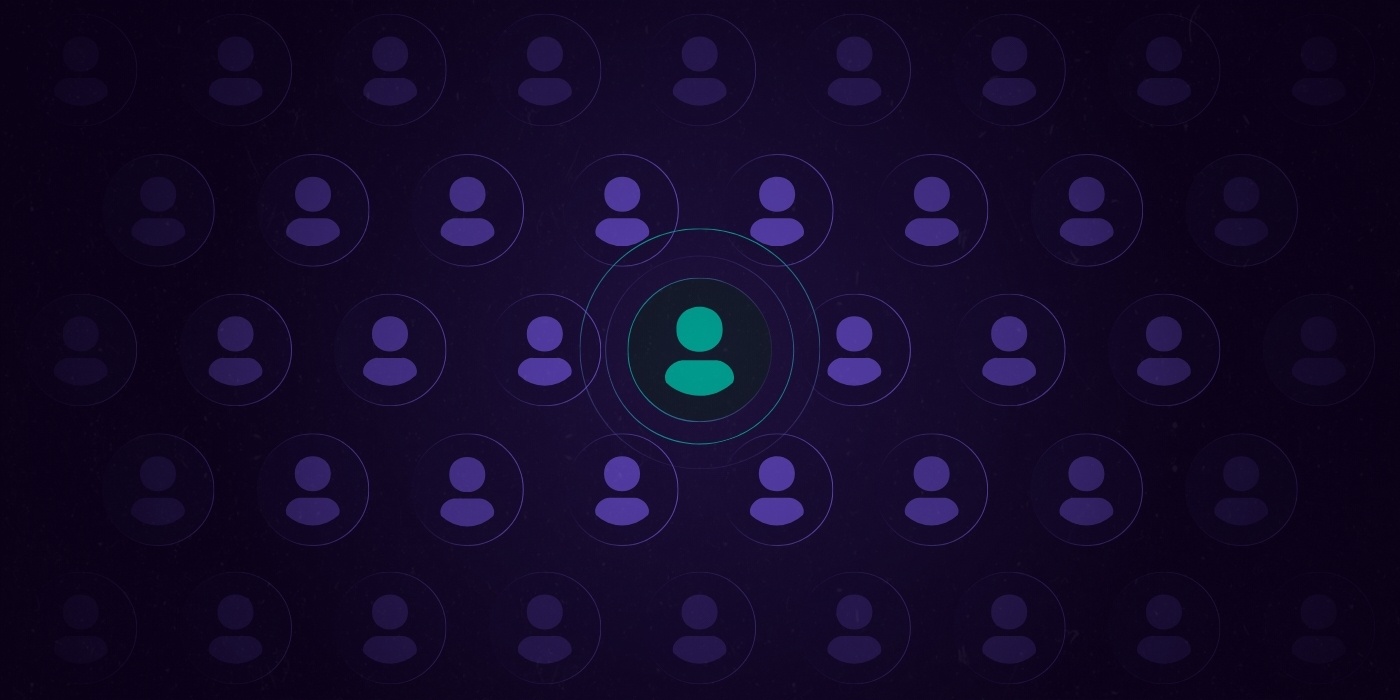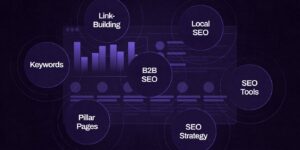-
Strategy
-
How to Choose a Web Design Agency in 3 Steps
Your website isn’t just a digital brochure. It’s your hardest-working salesperson, your brand’s first impression, and often the deciding factor between a new lead and a lost opportunity.
So when it’s time to redesign or build from scratch, one decision matters more than any other: choosing the right web design agency.
Easier said than done, right?
With so many options available and so much at stake, choosing a web design agency can be a daunting task.
There’s no shortage of agencies promising big results. Some impress with flashy portfolios. Others talk a lot about strategy and performance. But behind the scenes, capabilities vary. And choosing the wrong partner can cost you time, money, and real business growth.
That’s why we put this guide together.
It’s a clear, practical framework to help you cut through the noise, ask the right questions, and find the agency that’s the best fit for your business.
Let’s get into it.
Step 1: Clarify Your Needs Before You Search
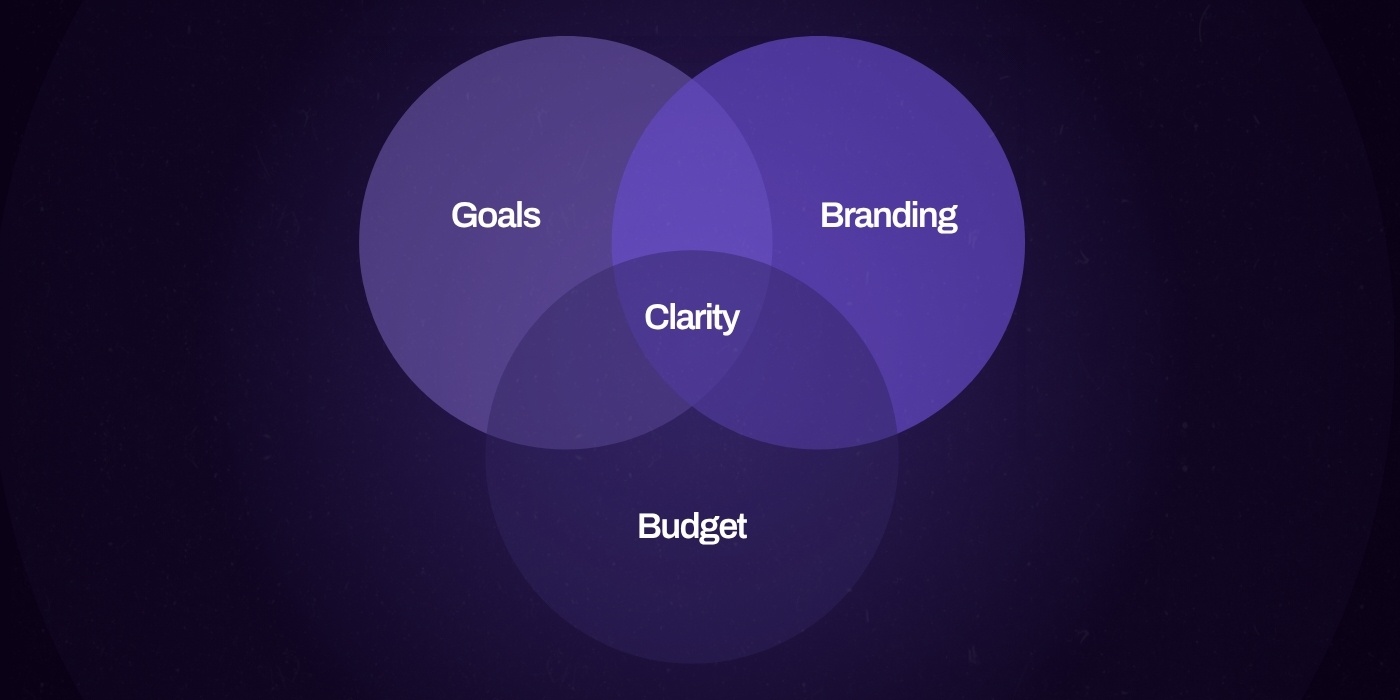
Before you start Googling “best web design agencies,” take a beat.
The biggest mistake we see clients make? Jumping into the search without knowing what they actually need.
It’s like shopping for a car without knowing if you’re hauling lumber or commuting to work.
Before defining your needs, take time to review your current site to assess what works, what doesn’t, and what needs improvement. The clearer you are up front, the easier it’ll be to spot the right agency and avoid wasting time (or money) on the wrong ones.
Set Clear Goals for Your Website
Start with the big picture. What’s the website supposed to do for your business?
Is it there to generate qualified leads? Drive eCommerce sales? Reinforce your brand’s credibility for sales conversations? The more specific you get, the better. Goals like “we want a better website” don’t cut it. Try:
- “We want to increase demo requests by 30%.”
- “We need to reduce bounce rate on our product pages.”
- “We want a site that supports outbound efforts with stronger social proof.”
- “We want a website that generates leads for our business.”
From there, think about functionality.
- Do you need a flexible CMS so your team can make updates without dev help?
- Are you integrating with a CRM like HubSpot or Salesforce?
- Will you be selling directly through the site, and if so, what kind of eCommerce functionality do you need?
A seasoned agency will ask these questions right out of the gate. If you’ve already got answers, you’ll be ahead of the game.
Get Clear on UX and Branding Priorities
This is where a lot of projects go sideways because “better design” means different things to different people.
Break it down into two lists: Must-Haves vs Nice-to-Haves.
For example: Must-Haves might include:
- Responsive design that actually adapts across devices
- SEO best practices baked into the build
- A GA4 setup or another analytics tool to track performance
- WCAG compliance if accessibility is a priority
- User centric design that prioritizes the needs and behaviors of your audience
Nice-to-Haves might include:
- Copywriting support if your current messaging is missing the mark
- A visual brand refresh if your current one feels stale
- Hosting and maintenance so your team doesn’t have to deal with dev tickets
Be honest about your internal resources, too. If your team can’t write 10 pages of optimized content in-house, that “nice-to-have” might actually be a must.
Define Your Budget and Timeline
Nobody loves this part, but it matters. Great websites aren’t cheap, and cheap websites aren’t great.
You don’t need to know an exact dollar amount, but you should have a realistic range in mind. Expect to spend more for complex functionality, custom design, or a deeper strategy engagement. If you’re planning to spend under $25K but want custom animations, 30+ pages, a CRM integration, and an overhaul of your brand messaging, you’re going to run into problems.
Also, think about your timeline. Building a website can be a time consuming process, so realistic planning is essential.
- Do you have a product launch coming up?
- A major campaign you’re aligning with?
- A board presentation or annual conference?
Flag hard deadlines early. Rushing design and development leads to cut corners and underwhelming results.
Step 2. Start Your Search Strategically
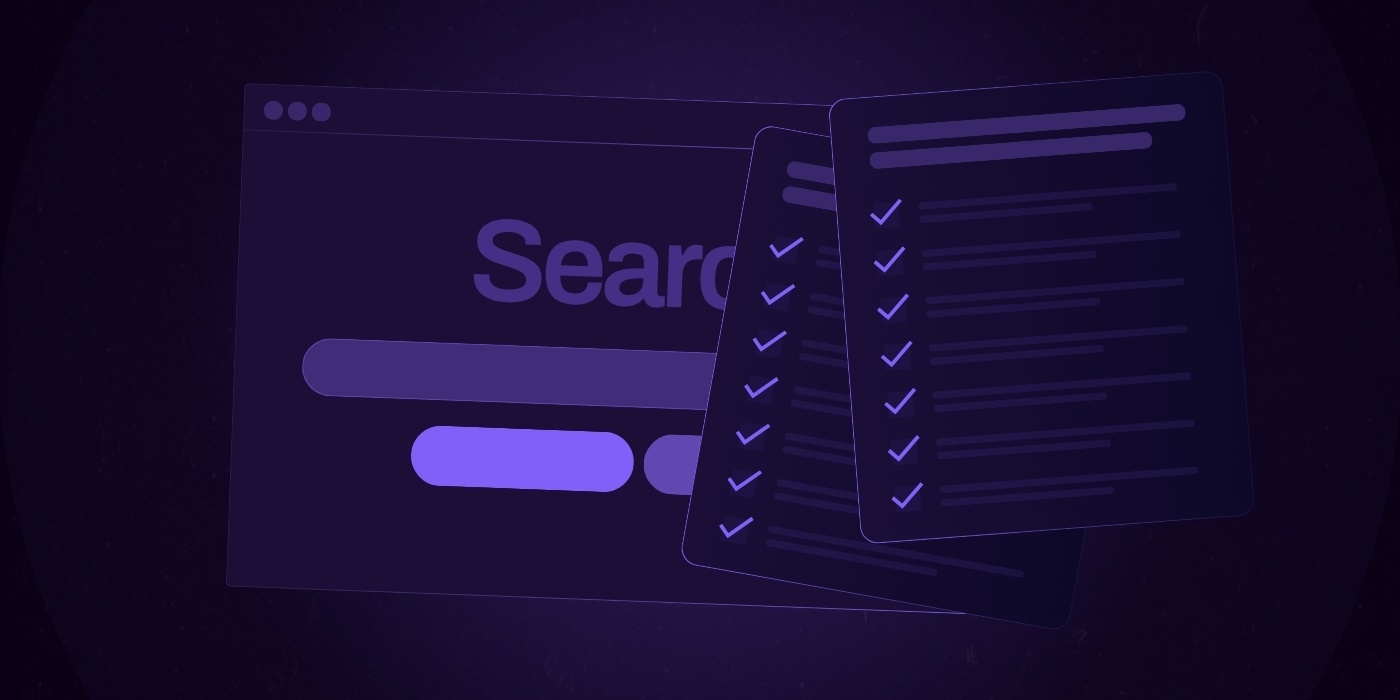
Once you’ve nailed down your goals, it’s time to find the right partners to help you reach them.
Choosing skilled website designers is crucial, as they can deliver both quality and results for your project. The internet is flooded with agencies that all sound great.
But great copy and slick visuals don’t always mean great results. The key is knowing where to look and what to look for.
Google + Third-Party Rankings = Smart Starting Point
Start with a Google search for terms like “top web design agencies” or “best B2B web design firms.” See who shows up consistently across multiple lists and categories.
That’s not just SEO at work, it’s often a sign that they’re taking their own marketing seriously, which is exactly what you want in a partner.
Then, cross-reference those names with third-party rankings. Sites like Clutch, DesignRush, and UpCity are gold mines. These platforms go beyond surface-level reviews. You’ll find:
- Verified client testimonials
- Project types and budgets
- Industry focus
- Service breakdowns (design, dev, strategy, etc.)
Also, check online reviews on platforms like Google and business directories to get a broader sense of client satisfaction and the company’s reputation.
Protip: Don’t just skim the star ratings. Read through the full reviews. Look for clients who sound like you, solving problems like yours.
Shortlist 3 to 5 Agencies That Meet Your Criteria
Now it’s time to get specific. You don’t need 10 options—you need a focused list of 3 to 5 agencies that clearly align with your needs.
Start by reviewing each agency's portfolio to assess their style, expertise, and the quality of their completed projects.
Here’s how to qualify them:
1. Relevant Work Examples
If an agency doesn’t show their work, that’s a red flag. Look for case studies or portfolios that highlight results, not just pretty visuals. A great agency explains not only what they built, but why it was effective. Also, check for feedback from previous clients to understand the agency's track record and reputation.
Do they have examples of lead-gen sites? SaaS platforms? B2B redesigns? Look for parallels between their past work and your current goals.
2. Design Aesthetic That Fits Your Vision
Every agency has a style. Some are bold and edgy. Others are clean and corporate. Your brand shouldn’t have to compromise to fit someone else’s design preferences.
Strong graphic design is essential for creating a visually appealing and effective website. It not only enhances aesthetics but also supports branding and user experience.
Ask yourself:
- Could I see this design style representing our brand?
- Does their work feel modern, accessible, and conversion-focused?
- Are they designing for users, or just trying to win awards?
A good agency adapts to your brand. A great one makes your brand shine.
3. Industry Experience That Actually Matters
Industry experience doesn’t mean they’ve worked with your exact competitor. It means they understand your business model, your buyers, and your KPIs.
Have they worked with B2B companies? SaaS brands? Mid-market teams with complex offerings and long sales cycles? Experience with medium sized businesses can be especially valuable if your company falls into this category, as these agencies are more likely to understand and address your specific needs and objectives. If so, they’re more likely to build a site that speaks to your audience and aligns with your funnel.
You don’t want to be someone’s guinea pig. Look for signs that they’ve solved the kinds of problems you’re facing right now.
4. Vet the Agencies Like a Pro
Once you’ve got a shortlist, it’s time to dig in. At this stage, you’re not just picking a vendor. You’re choosing a partner that can either elevate your brand—or cost you a lot of time, money, and missed opportunities. This is where you separate the real experts from the agencies that just look the part.
Review Their Portfolio and Case Studies
First stop: their work.
Any agency can make a slick homepage. You want to see a portfolio that goes deeper than surface-level visuals.
Look for:
- Variety: Are they a one-trick pony or can they flex across industries, audiences, and design styles? Check if they have case studies from other businesses similar to yours to see how they handle projects in your industry.
- Originality: Do their sites feel templated or truly tailored to each client’s brand and goals?
- Outcomes: Pretty only gets you so far. Case studies should highlight what the website achieved. Think:
Increased lead volume, improved conversion rates, boosted search visibility, and shortened sales cycles
If there’s no mention of results, that’s a red flag. Strong agencies connect their creative decisions to business impact.
Check for Strategic Capabilities
A website isn’t just about how it looks. It’s about how it works. This is where a lot of agencies fall short—they can design, but they can’t strategize.
Ask questions like:
- How do you approach UX for conversion optimization?
- What role does technical SEO play in your process?
- Do you help with content strategy and information architecture?
- Do you offer content creation as part of your services?
- What happens after launch? Do you offer long-term support or optimization?
You want a team that thinks beyond the build. Look for signs that they understand the full lifecycle of a website, from initial strategy to post-launch performance tuning.
Look for Red Flags
Some issues are small. Others are deal-breakers. Here’s what should immediately make you pause (or run).
🚩 No CMS Access or Mobile Responsiveness
If they’re building you a site you can’t edit, that’s a control problem. And if your site doesn’t perform on mobile, you’re cutting out more than half your audience. Neither is acceptable.
🚩 Vague Pricing or Hidden Fees
You don’t need an exact quote on day one, but a reputable agency will be upfront about how pricing works, what’s included, and how scope changes are handled. If things feel slippery here, expect more of the same later.
🚩 Pushy Sales Tactics
A good agency doesn’t need to strong-arm you into signing. If someone’s leaning hard on urgency, or dodging tough questions about process or outcomes, that’s a trust issue.
🚩 No Documented Process
Building a website is complex. There should be a clear roadmap for how things move from discovery to design to development and launch. If they’re winging it, you’re the one who’ll pay the price when deadlines slip or expectations don’t align.
🚩 No Security Measures for Contact Forms
If the agency doesn’t implement security features like spam mitigation tools or ReCAPTCHA on your contact forms, your site could be vulnerable to spam and malicious activity. Proper protection of contact forms is essential for website security.
Step 3. Ask the Right Questions During Your Strategy Call

Strategy calls aren’t just about the agency getting to know you.
They’re your chance to get under the hood and figure out if they’re the real deal—or just good at selling. Many agencies offer a free consultation, which is a great opportunity to evaluate a potential web designer's approach, compatibility, and professionalism.
The right questions here will save you months of frustration later. So go beyond “what’s your hourly rate?” and ask the things that actually impact your experience and results.
Process & Collaboration
A polished process is non-negotiable. If they’re vague here, that’s a red flag.
Ask: What does your process look like from kickoff to launch?
What should you expect to hear in response?
- You should expect a clear breakdown of phases: discovery, strategy, wireframes, design, development, QA, launch.
- Bonus points if they walk you through how they tailor the process to different business types (B2B vs eCommerce vs SaaS).
Ask: How will we collaborate, give feedback, and track progress?
What should you expect to hear in response?
- You should expect a clear breakdown of specific tools they use in their process. Do they use tools like Figma for design feedback? Notion or Asana for project management?
- Will you be reviewing designs in big batches or iteratively, one page at a time?
- Ask how they avoid bottlenecks. A good agency will keep things moving even when your internal team gets busy.
- Effective communication throughout the project is crucial to ensure smooth collaboration, clear understanding of your needs, and successful outcomes.
You’re looking for structure and flexibility. They should lead the process while making space for your input.
Team & Communication
Web projects get messy fast when you don’t know who’s doing what. So be blunt.
Ask: Will we have a dedicated project manager?
What should you expect to hear in response?
- You're getting a real, experienced PM, not a designer moonlighting as one.
Ask: Who’s actually doing the work?
What should you expect to hear in response?
- A direct response. Are they in-house? Contractors? Overseas? None of these individually are a problem, but you have a right to know who’s touching your site and when, and it's ok if you have a preference on who that is.
Ask: How often will we meet or get updates?
What should you expect to hear in response?
- A clear answer on how they handle this communication is imperative to keep things on track.
- Weekly check-ins are standard for active sprints.
- Ideally you should also get timelines, key milestones, and clear expectations on deliverables from both sides.
Clear, consistent communication is just as important as strong design. If you don’t trust their ability to manage the project, nothing else matters.
Results & ROI Focus
A great agency should be able to talk outcomes, not just output.
Ask: How do you measure success?
What should you expect to hear in response?
- Good answers include increased conversion rates, improved SEO visibility, reduced bounce rates, and stronger lead quality, not “we think it looks great.”
Ask: Can you share examples of results from past projects?
What should you expect to hear in response?
- Look for case studies with data. Not just before-and-after screenshots, but actual metrics that moved.
Ask: Do you offer client references?
What should you expect to hear in response?
- If they hesitate or only give you hand-picked testimonials, that’s a red flag. You want to speak with clients who’ve gone through the full experience from kickoff to post-launch.
It’s important to choose an agency that knows how to build websites designed to deliver measurable business outcomes.
You’re not just hiring for a deliverable. You’re hiring for business outcomes. Make sure they see it the same way.
Support After Launch
Some agencies disappear after the final invoice. Others stick around and make sure you’re set up to win.
Ask: Will we have CMS access and training?
What should you expect to hear in response?
- You should never have to call an agency to update a blog post or swap a headline. Ask what platform they build on and how intuitive it’ll be for your team. A robust content management system is essential for ongoing content updates and business growth. This also is an indicator of wether or not they have the experts available to them for this project. If they hesitate to answer or are unclear, they may not have the technical prowess they say they do.
Ask: Do you offer ongoing maintenance or optimization?
What should you expect to hear in response?
- This could mean performance tuning, bug fixes, conversion testing, or rolling out new pages after launch. Website maintenance is crucial for keeping your site secure and up to date, including regular software updates, backups, and monitoring for threats.
Ask: What happens if something breaks?
What should you expect to hear in response?
- Who do you contact, and how quickly do they respond? Make sure your agency supports various content management systems and can address issues promptly.
Great support doesn’t stop when the site goes live. It extends into helping you get the most from your investment long after launch.
Security is also key. Ensure your site includes an SSL certificate to protect user data and maintain trustworthiness.
Step 4. Compare Proposals and Make Your Decision

You’ve had the calls, asked the tough questions, and now the proposals are rolling in. This is where you separate the contenders from the pretenders. If you’re only scanning for the lowest price, you’re missing what really matters.
A proposal is more than a quote. It’s a window into how the agency thinks, how well they understand your goals, and how they plan to get you there.
What to Look For in a Proposal
1. Clarity of Scope, Timeline, Deliverables, and Price
You should be able to read the proposal and walk away knowing exactly what’s included, when you’ll get it, and how much it will cost. If it’s vague or overly technical, ask for clarification.
Look for:
- A defined number of pages or page templates
- Specific functionality or integrations (CMS, CRM, analytics, custom features)
- A clear breakdown of phases and timelines
- What’s included, and what would trigger additional fees
- Any additional services or other services offered, such as graphic design, content creation, branding, or digital marketing, and whether these are included or available as add-ons
If the details are fuzzy now, the project is likely to get messy later.
2. Alignment With Your Business Goals
A strong proposal reflects everything you talked about during discovery. It should be obvious that they listened, understood your challenges, and built a solution around your goals.
For example:
- If lead quality is a priority, does their approach include conversion-focused UX and messaging?
- If your team lacks internal bandwidth, are they offering support for content or project management?
- If SEO is important, do they mention technical optimization, keyword planning, or schema?
A good agency won’t hand you a copy-paste proposal. They’ll show that your success is their priority.
3. Willingness to Customize Their Approach
No two businesses are exactly alike, so no two website projects should be either. Great agencies have a defined process, but they know how to adapt it to your specific needs.
Maybe you need to move faster to meet a campaign deadline. Or maybe your internal team is handling development, and you only need strategy and design.
A flexible proposal is a strong indicator of a collaborative partner.
Balance Fit, Expertise, and Value
You’re not just buying a website. You’re investing in a business-critical asset.
Choose the partner who’s best equipped to deliver long-term results. Working with one company that can handle all aspects of your web and digital needs offers convenience and efficiency, streamlining your project management and communication.
Avoid the cheapest option by default
Lower-cost proposals often come with trade-offs like:
- Minimal strategy or research
- Template-based designs
- Limited functionality or scalability
What looks like savings now can lead to rework, missed goals, or a full redesign sooner than expected.
Prioritize chemistry and confidence
You’ll be working closely with this team for weeks or even months. Do you trust them to lead? Do they communicate clearly? Are they proactive, transparent, and aligned with how your team works?
Look for shared values
Do they care about performance, or just design awards? Are they focused on solving your problems or selling a process? The best partnerships happen when your agency feels like an extension of your internal team.
What a Great Agency Looks Like

(We realize the image above is a shameless plug, but do you really blame us? 
By now, you’ve probably seen a dozen agencies that seem solid. But when you’re making a decision that can shape the next few years of your business, you need more than a strong portfolio and a convincing sales call. You need a true partner.
Here’s what the best agencies all have in common and what you should expect from the one you choose.
They Listen to Your Ideas (And Challenge Them When Needed)
A great agency respects that you know your business. They’re going to ask thoughtful questions, take your ideas seriously, and work to understand your goals before they start pitching solutions.
But here’s the key: They won’t just agree with everything you say.
If something doesn’t make sense for your audience or conversion goals, they’ll speak up. They’ll show you a better way and back it up with data, experience, or real-world examples.
You don’t want “yes people.” You want collaborators who can spot blind spots and raise the bar.
They Explain Technical Concepts Clearly
If an agency starts throwing around acronyms and jargon to make themselves sound smart, walk away. That’s not expertise. That’s obfuscation.
The best agencies make the complex feel simple. Whether it’s explaining how a headless CMS works, how core web vitals impact SEO, or what’s actually involved in integrating with your CRM, they’ll talk to you like a human being, not a developer.
They’ll answer your questions patiently. They’ll bring clarity to every step. And they’ll make you feel informed and confident, not overwhelmed.
They Care About Your Success, Not Just the Build
Plenty of agencies are focused on the finish line. But the great ones are thinking beyond launch.
They want to know how the site is performing after it goes live. They ask about your lead quality, your bounce rates, your KPIs. They offer suggestions for optimization or testing, and some agencies include ongoing digital marketing support such as email marketing to help you grow your online presence. And they genuinely celebrate your wins.
This isn’t just about delivering a good-looking site. It’s about building something that drives real business results and keeps driving them over time.
They Have a Process That Instills Confidence
You should never be left wondering what’s happening with your project. A great agency has a clear, structured process that keeps things moving and keeps you in the loop.
They’ll outline every phase of the project up front, from discovery and strategy through to QA and launch.
You’ll know when to expect deliverables, when you need to give feedback, and what’s coming next.
Even better? They’re proactive. They solve problems before they happen, and they give you the confidence that everything is under control.
They Get Results (And Can Prove It)
At the end of the day, this is what matters most. Can they deliver the outcomes you’re looking for?
The best agencies come armed with proof. They show you case studies with actual numbers, not just screenshots. They talk about how they improved lead conversion, reduced bounce rates, or boosted search visibility. They can connect their work to measurable growth, and they’re not afraid to show you how they did it.
The best website is one that delivers measurable results and aligns with your business goals.
If they can’t point to results, they’re not ready to handle a project that matters.
The Right Partner Can Transform Your Marketing (And Your Business)
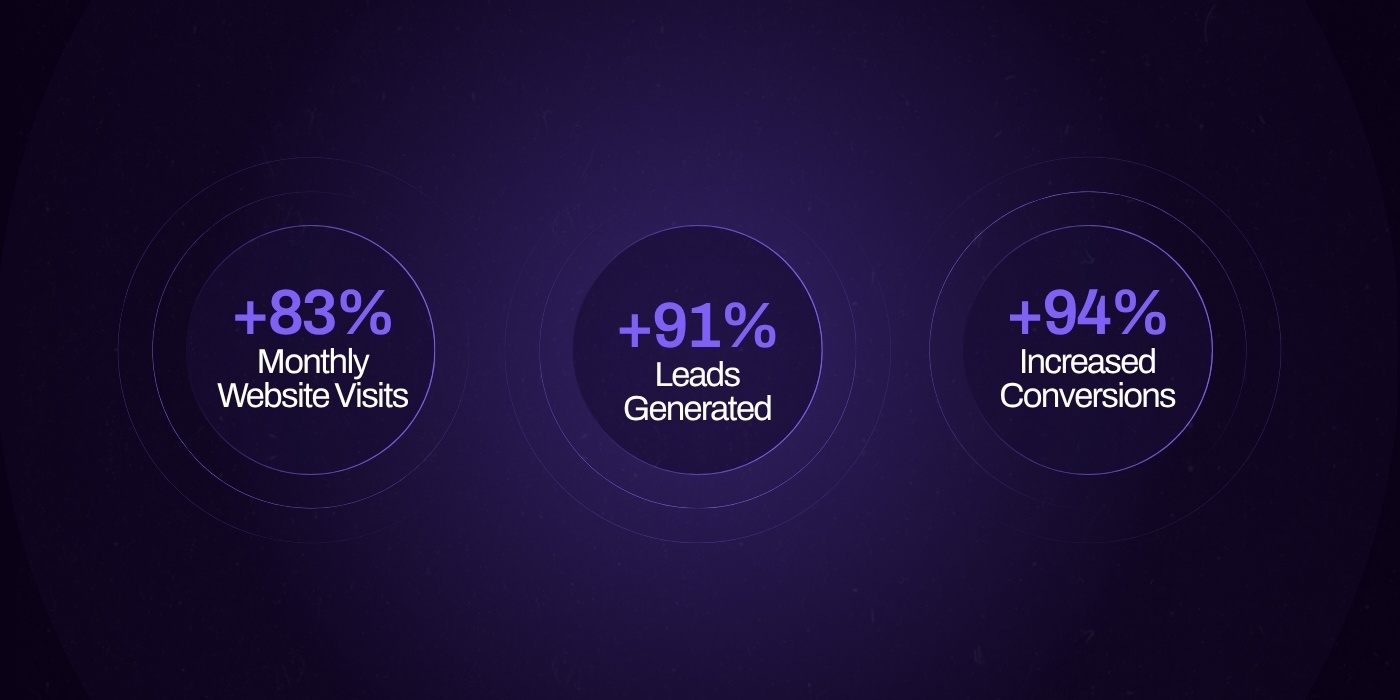
Choosing a website redesign agency isn’t just a task to check off your to-do list.
It’s a decision that directly affects how your brand is perceived, how your customers engage, and how your business grows. Working with a good web designer and the right web design company is essential to ensure your website is effective, reliable, and aligned with your business objectives. Additionally, after launch, the site owner should have full control and ownership of the website, domain, and all related assets.
A strong agency partnership brings more than just a website. It gives you a team that helps solve problems, simplifies complexity, and pushes your strategy forward. When you work with the right people, the process becomes smoother, collaboration feels easier, and the final product performs better—because it’s built with purpose.
That kind of result doesn’t happen by accident. It takes intention.
So take the time to do this right. Define your goals. Ask better questions. Look past the sales pitch and evaluate how each agency thinks, communicates, and delivers. You’re not just buying a service. You’re investing in a team that will help shape your brand’s future.
When you find that right fit, your website stops being just another marketing asset. It becomes a long-term growth engine that attracts, converts, and builds trust at every stage of the customer journey.
That’s what the right agency helps you build.
Not just a better site, but a better business.
